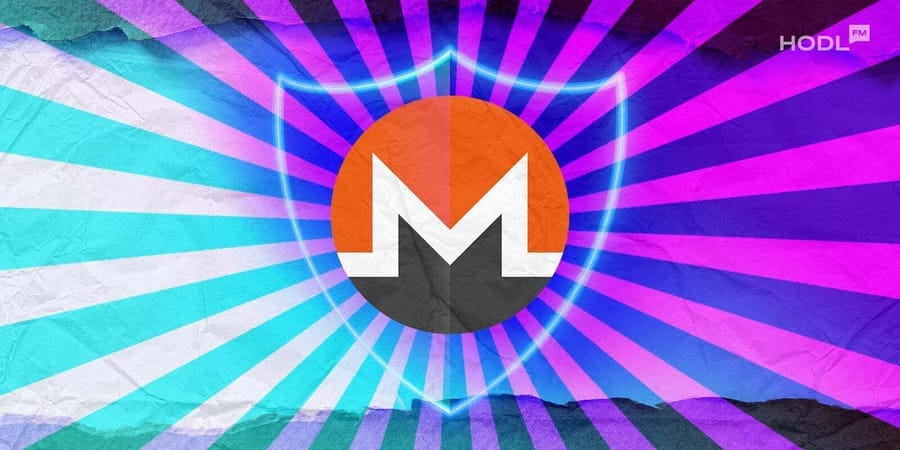The privacy‑focused cryptocurrency Monero (XMR) has experienced its largest blockchain reorganization to date, erasing 18 blocks and 36 minutes of activity, according to multiple independent monitors.
The incident, which occurred between September 14–15 at block height 3,499,659, invalidated 118 transactions and exposed the network’s vulnerability to concentrated mining pools. Despite the disruption, Monero’s native token XMR rose more than 5% on the day and traded near $302.54, up almost 12% over the week, according to CoinGecko data.
How the reorg occurred
A reorganization (“reorg”) happens when competing chains are produced, with nodes on the network reverting to the chain that demonstrates the most cumulative proof‑of‑work. In this case, Monero mining pool Qubic unveiled a secretly mined chain that surpassed the public one.
Upon release, Monero nodes automatically recognized the longer chain, forcing a rollback that discarded 18 previously accepted blocks. Despite many of the erased transfers having already received the customary ten confirmations, they were nullified.
Recently, an 18-block re-org occurred on Monero's mainnet. You can check this by inputting alt_chain_info into your monerod console if your node was operating during the re-org:
— Monero Research Lab (Unofficial) (@MoneroResearchL) September 14, 2025
18 blocks long, from height 3499659 (437 deep), diff 510191663980291508:…
Community podcaster Xenu posted on X that “this is the largest reorg Monero has ever seen,” warning it shatters the long‑held assumption that ten confirmations are sufficient for finality.

Selfish mining suspected
Observers attribute the disruption to “selfish mining”, a strategy whereby miners withhold discovered blocks and only publish them once their secret chain is longer than the public chain. Under proof‑of‑work rules, this privately accumulated chain displaces the honest chain, rewriting history and invalidating recent transactions.
Qubic previously attempted a 51% attack last month under the justification of “experiments.” While its claims were disputed, several community estimates suggested it briefly controlled a majority of CPU mining power.
Community and core developer response
The Monero project acknowledged the severity of the event. In its GitHub repository update, core maintainers described the pool’s actions as malicious and warned more large reorganizations are possible while selfish mining strategies persist.
To address the threat, developers are considering activating long‑standing code that permits rolling DNS checkpoints, a feature originally added in 2014 as an emergency safeguard. By embedding “checkpointed” block hashes in DNS records controlled by the core team, nodes that opt‑in can reject reorganizations deeper than a given threshold.
The Monero core team wrote:
“DNS checkpoints could prevent deep reorganizations and double‑spend risk, but they temporarily reduce decentralization. The network will need broad mining pool cooperation for them to be effective.”
Community discussions highlighted the tradeoff: checkpoints could stop reorgs but weaken Monero’s permissionless ethos.
Exchanges tighten policies
Because the rollback invalidated transactions with more than ten confirmations, several exchanges are now extending their confirmation depth requirements for XMR deposits and withdrawals. Analysts note this protects against further reorganizations but delays user access to funds.
@evilcos from blockchain security firm SlowMist compared reorg risks to a “Damocles’ sword,” warning that ignoring them leaves proof‑of‑work blockchains open to repeat attacks and potential double‑spends.
What it means for users
For ordinary users, the most immediate impact is a need for greater patience when transacting in XMR. Merchants and service providers may choose to wait for dozens of confirmations before considering payments final.
The community is divided. Some users indicated they would pause XMR acceptance until solutions are in place, while others called on miners to migrate away from large pools like Qubic.
Outlook
Monero’s privacy and decentralization focus have made it a leading cryptocurrency for censorship‑resistant transactions, but the latest reorg underscores a longstanding challenge: securing the network against coordinated mining attacks without sacrificing its fundamental trust assumptions.
The decision on whether to deploy DNS checkpoints could reshape Monero’s balance between resiliency and decentralization, and developers say discussions will intensify in the coming weeks.

Disclaimer: All materials on this site are for informational purposes only. None of the material should be interpreted as investment advice. Please note that despite the nature of much of the material created and hosted on this website, HODL FM is not a financial reference resource, and the opinions of authors and other contributors are their own and should not be taken as financial advice. If you require advice. HODL FM strongly recommends contacting a qualified industry professional.





